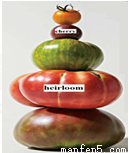0 143520 143528 143534 143538 143544 143546 143550 143556 143558 143564 143570 143574 143576 143580 143586 143588 143594 143598 143600 143604 143606 143610 143612 143614 143615 143616 143618 143619 143620 143622 143624 143628 143630 143634 143636 143640 143646 143648 143654 143658 143660 143664 143670 143676 143678 143684 143688 143690 143696 143700 143706 143714 151629

 e fun giving catchy names to varieties: Mortgage Lifters, Beefsteaks, Oxhearts, Early Girls.
e fun giving catchy names to varieties: Mortgage Lifters, Beefsteaks, Oxhearts, Early Girls.